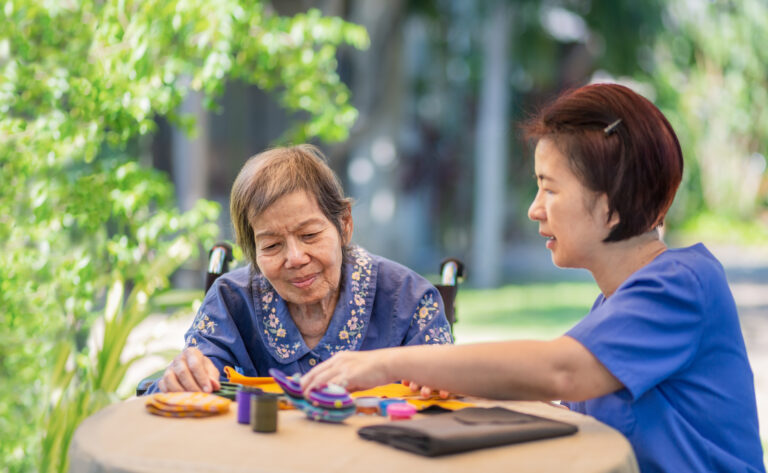As our loved ones age, they may face challenges in maintaining their independence. This is especially true for individuals with dementia, a condition that affects the brain and causes a decline in cognitive functioning. Dementia can make it difficult for people to perform daily tasks, remember important information, and communicate effectively. As caregivers, it is important for us to support and encourage independence in dementia patients as much as possible. Not only does this help them maintain a sense of self-worth and dignity, but it can also slow down the progression of the disease.
In this article, we will discuss some practical ways to encourage independence in dementia patients. These strategies are based on the principles of person-centered care, which focuses on tailoring care to the individual’s needs and preferences. Keep in mind that every person with dementia is unique and may require different approaches, so be open to adapting these suggestions to fit your loved one’s specific needs.
1. Allow time for decision-making
Dementia can make decision-making a challenging task for patients. They may struggle with making choices or become overwhelmed by too many options. It is important to give them enough time and support to make decisions independently. Avoid rushing them or making decisions for them unless absolutely necessary. Offer choices in a clear and simple manner, such as “Do you want tea or coffee?” rather than “What do you want to drink?” This helps reduce confusion and gives them a sense of control over their choices.
2. Focus on what they can do
Dementia may limit a person’s ability to perform certain tasks, but it is essential to focus on what they can still do. This could be something as simple as folding laundry or setting the table. Encourage and praise them for their efforts, no matter how small. This provides a sense of accomplishment and boosts their confidence, which can have a positive impact on their overall well-being.
3. Simplify tasks and routines
Tasks that were once second nature may become challenging for someone with dementia. To encourage independence, try breaking down tasks into small, manageable steps. For instance, instead of asking them to cook a full meal, ask them to help with simple tasks like peeling vegetables or stirring a pot. Simplifying routines can also be helpful. For example, setting a daily routine for bathing, dressing, and mealtimes can provide structure and familiarity for the patient.
4. Use memory aids
Memory loss is a common symptom of dementia, which can make it difficult for patients to remember important information. Using memory aids, such as sticky notes, calendars, and labels, can help them remember important dates, events, and tasks. These aids can also serve as prompts to promote independence. For instance, a labeled drawer can help remind them where to find their clothes.
5. Involve them in meaningful activities
Engaging in meaningful activities is crucial for maintaining a sense of purpose and identity. Encourage and involve your loved one in activities they enjoy and are capable of doing. This could be anything from gardening to listening to music or painting. These activities not only promote independence but also provide a sense of joy and fulfillment.
6. Be patient and offer support
It is important to be patient and understanding when caring for someone with dementia. They may take longer to complete tasks or require extra assistance. Avoid getting frustrated or impatient and instead offer your support and encouragement. Remember to use simple language and gestures, and be attentive to their needs and emotions.
7. Provide a safe environment
Safety should always be a top priority when promoting independence in dementia patients. Make sure the home environment is safe and free from hazards that could potentially lead to accidents. Consider installing grab bars in the bathroom, removing clutter from walkways, and using locks on cabinets containing hazardous items. This can give both the patient and their caregivers peace of mind.
8. Seek professional help and support
Caring for someone with dementia can be emotionally and physically demanding. It is important to seek support and resources to help manage the responsibilities. Consult with a healthcare professional and consider joining a support group to learn more about caring for someone with dementia and to connect with others who are going through a similar experience.
In conclusion, encouraging independence in dementia patients is crucial for maintaining their sense of self-worth and dignity. By using person-centered approaches and providing support and patience, we can help our loved ones with dementia maintain as much independence as possible. Remember that each individual with dementia is unique, so it is important to adapt these strategies to fit their specific needs. With love, understanding, and support, we can help our loved ones live a fulfilling and independent life despite their condition.




